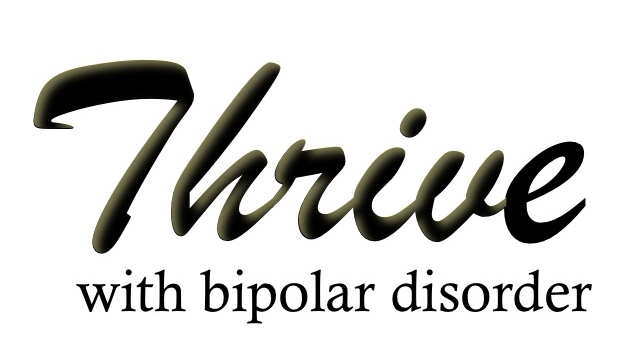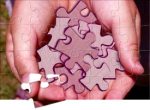In this blog I hope to create a better understanding and compassion for people living with the diagnoses bipolar disorder, schizoaffective disorder, and borderline personality disorder.
Often times society sees people living with bipolar disorder as people to be feared and are seen as dangerous. Society has no clue as to what schizoaffective disorder is. And often when people think of borderline personality disorder there is so much judgment and rejection that it can feel incredibly hopeless to the person experiencing it.
It’s important that I acknowledge that I do not have personal experience living with schizoaffective disorder or borderline personality disorder. I DO live with bipolar disorder and have a much greater understanding of how it affects people. Nonetheless, I hold a tremendous amount of compassion for anyone living with diagnoses that are incredibly stigmatized and misunderstood.
What I hope to give you in this blog:
- Shine a light that empowers you to be proactive in how you choose to live with the challenges caused by whatever conditions and circumstances you are dealt.
- I hope to remove the judgment and stigma and instead invite you to have compassion and understanding for these experiences.
- An awareness that any diagnosis is NOT who we are. Diagnoses are something we live with, we are in relationship with it. This means that it has the power to affect us and we have the power to affect it.
When professionals make a diagnosis we look at the following criteria and to what degree it affects one’s life:
- Mood (defined as a temporary state of mind or feeling)
- Behavior (defined as the way one acts or conducts one’s self, especially towards others) / Changes in Needs and Interests
- Changes or Patterns in Thought Process
- Sense of Self
In today’s blog we will explore the diagnoses bipolar disorder, schizoaffective disorder and borderline personality disorder from the criteria of Mood with compassion. Following blogs will cover the other criteria.
Mood
Bipolar Disorder:
It is important to note that bipolar disorder is defined by the presence of mania. The diagnosis is not dependent on the presence of depression. In this blog, we will only explore from the perspective of mania.
The mood component of mania is defined as a temporary state (at least a week or can be less) in which mood is:
- Unusually elevated, euphoric or expansive
Experiencing these mood patterns can feel so incredibly good that it is hard to recognize that mania is present. They may be the superhero “I can fly” feelings that we dreamed about experiencing as children and now they are REAL feelings.
- Unusually irritable
No one usually wants to take responsibility for their irritability. Irritability is one of those things that just doesn’t make sense. It’s not usually based on what’s happening right now. It’s based on what happened in the past. And it usually is from things we don’t address.
When irritability happens in the experience of mania in bipolar disorder it’s because bipolar disorder puts the pot of our emotions on a stove or in a pressure cooker. Our emotions boil over. Meanwhile, bipolar disorder is stirring the pot, mixing all of our emotions together without any regard to what’s taking place here and now. No matter what those emotions are, when this is happening to you, you’re going to be very irritable.
- Often feels as though every possible human emotion is being expressed in the same time period.
To make sense of this from a brain perspective, see my blogs on the bipolar brain.
During this experience we are our most scared and at one of our most fragile times in which our life is at tremendous risk. This is a time when we feel completely out of control not only in our own minds, but also in our bodies. It is so hard to share that we are in danger with anyone because we are so afraid of what will happen to us. Often times its like we are having an out-of-body experience. We are watching ourselves be completely out of control, but there is nothing we can do about it. We know we are not crazy, but we are having a crazy experience and we can’t explain what’s happening and why.
- Shifts in mood happen impulsively or swiftly with or without trigger
This is so painful because there are so many consequences. During these temporary times, our family and friends don’t know how to be around us and are scared of us. They are walking on egg shells. It’s hard to be a friend when people can’t feel safe with us. We feel so alone and so isolated. We don’t know how to repair what was broken when we were out of control. It is very easy for shame, blame and guilt to set in.
- There is a loss of control in the mood shift, yet there is an awareness of the shift in mood
Often times people think that there is a lack of awareness when people are experiencing mania. I tend to disagree. I think people are so scared of what they are experiencing that there is an abundance of denial, fear and shame. I do not believe there is a lack of awareness. No one ever wants to feel completely out of control, let alone acknowledge it to other people who have no clue as to what its like.
I have found people living with bipolar disorder to have incredible sensitivity and self-awareness.
Note: If someone has lived with bipolar disorder untreated for a long time, it is possible for them to feel as though it is their personality. And maybe it is, I believe it is possible to have a manic personality and it is possible to have rapid and consistent temporary mood changes. Anything is possible.
Schizoaffective Disorder:
Same as bipolar disorder or major depressive disorder (depression without mania) or any other mood disorder.
The key difference between schizoaffective disorder and other mood disorders is that the delusions and hallucinations take place during times when mania or depression are not taking place. This means that psychosis occurs beyond mood disorder episodes as well as during them. If you are suffering from something similar, then it might be a good idea for you to seek help. You could always check out an inpatient facility like Honey Lake Clinic that can help support you through this disorder. However, the decision is up to you.
In my opinion, this may be the most difficult and painful mood disorder that people experience. I can only imagine how scary it would be to not only have to live with mania and depression, but to also experience delusions and hallucinations during the times when mania and depression are not present. Nonetheless, I am confident that there are gifts and beauty in every experience. I trust that we don’t get to hear about the goodness that comes through these experiences because as a society we silence that. (For example, prophetic wisdom and vision.)
Borderline Personality Disorder:
Here’s where people often get confused. It is quite confusing to recognize the difference between someone experiencing bipolar disorder and borderline personality disorder.
People living with bipolar disorder can also live with borderline personality disorder.
The reason why it is considered a personality disorder versus a mood disorder is because here mood shows up as character traits that are consistently unstable possibly on a daily basis that can last anywhere from a few hours to a few days. It gets very confusing with rapid cycling bipolar disorder. So keep reading to better understand.
It is important to understand that borderline personality disorder appears to have a very strong nurture / environmental components that are often found to be passed on from one generation to another.
Research has shown that people experiencing borderline personality disorder often did not grow up in an environment / family that offered them stability and predictability.
Their environment may be one that lacked defined and consistent boundaries.
In fact, people nurtured in this way often grow up in an environment where they never really know if and when they will have their needs met. This is incredibly traumatic to a person.
A key component that people share with this diagnosis is the experience of emotional abandonment from their primary caregivers / parents. The response to these experiences are a persistent fear that they will be abandoned emotionally or physically in any relationship.
Anyone living in these nurture / environmental conditions would experience tremendous pain and fear. When your primary caregivers abandoned you emotionally and/or physically or you lived with the fear that they would, relationships may be so difficult and frightening. It makes sense of how someone could live with such a deep need to belong, to be loved and to have their needs met.
It has been described to me by a client in this way, “Its like going through life walking on glass and you get so used to it that it provides the comfort of a blanket.”
This does not mean that all people living in this type of environment will grow up to live with borderline personality disorder, it simply makes them vulnerable to having the following response in life.
These following MOOD characteristics are a response to growing up in this type of environment:
- Intense dissatisfaction with life
- Irritability or anxiety
- Intense anger and/or difficulty controlling anger
- Intense fear of abandonment
- Consistent idealizing and devaluing of others
- May have consistent suicidal ideation
Note: We are only discussing characteristics of mood, this is not a complete diagnosis.
A key difference from bipolar disorder is that people living with borderline personality disorder do not experience elevated, euphoric and expansive mood. They don’t feel invincible and on top of the world.
In Part Two we will explore this from the perspective of Behavior and Changes in Needs and Interests.
Part Three will cover Thought Processes and Sense of Self










